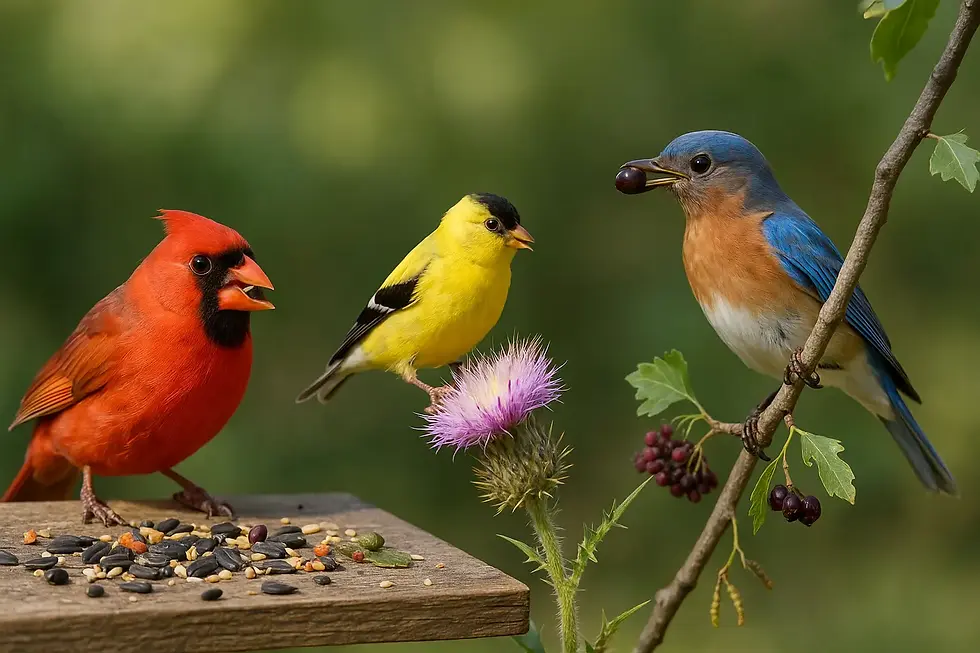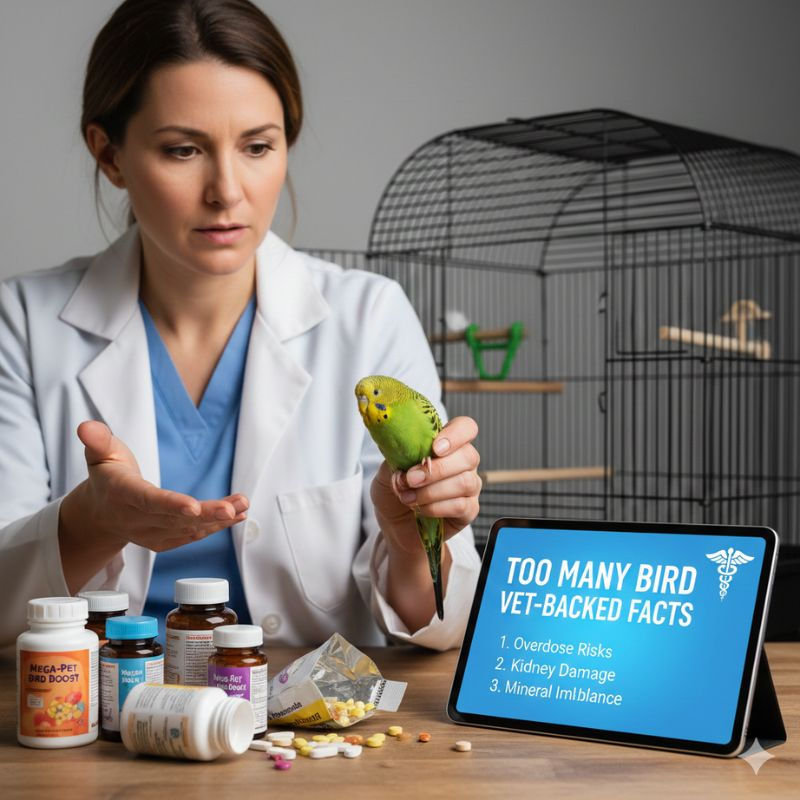Wild Bird Food Secrets: What Nature’s Birds Truly Crave
- petperchlove
- Aug 21, 2025
- 3 min read

If you’ve ever wondered how to attract a vibrant variety of birds to your backyard, the secret lies in choosing the right Wild Bird Food. Birds are not just drawn to any seeds—they crave specific nutrients, textures, and flavors that mimic their natural diet. Using the right wild bird seed and wild bird feed not only nourishes them but also keeps them visiting your garden regularly. In this guide, we’ll explore the secrets of what birds truly love, and how you can provide it with ease through Pet Supplies Online and Online Pet Supplies platforms.
Understanding What Birds Really Want
Birds have evolved to thrive on diverse diets. While common seed mixes can attract some species, understanding their natural preferences is key. For instance:
Finches love tiny seeds like thistle and nyjer.
Cardinals prefer sunflower seeds, particularly black oil sunflower.
Woodpeckers enjoy suet cakes and high-fat foods.
Sparrows and chickadees are drawn to millet and cracked corn.
By offering a mix of these options, you ensure that your backyard visitors are not only happy but also healthy. Quality Wild Bird Food provides essential nutrients such as proteins, fats, and vitamins, which are critical during breeding and migration seasons.
Choosing the Right Wild Bird Seed
When selecting wild bird seed, look for:
Purity – Avoid mixes with fillers like red millet or oats that most birds discard.
Variety – A blend of sunflower, nyjer, millet, and safflower seeds attracts a wide range of species.
Freshness – Seeds lose their nutritional value over time. Buy from trusted Pet Supplies Online sources to ensure freshness.
Providing the right wild bird feed encourages repeat visits and helps local bird populations thrive.
How to Feed Birds Safely
Use Clean Feeders: Regularly clean feeders to prevent disease.
Place Feeders Strategically: Position them near shrubs or trees for cover, but away from predators.
Offer Fresh Water: Birds need water for drinking and bathing, especially during hot or dry seasons.
Offering Wild Bird Food alongside clean water and safe feeding stations creates a welcoming environment for birds and makes your backyard a natural haven.
DIY Wild Bird Food Ideas
If you enjoy hands-on activities, you can make your own wild bird feed at home:
Peanut Butter & Seed Cakes: Mix peanut butter with bird seed and shape into balls. Hang them on tree branches.
Fruit Treats: Slice apples, oranges, or berries to attract fruit-loving species.
Suet Mix: Combine suet, cornmeal, and seeds for high-energy winter food.
These homemade options complement commercially available wild bird seed and ensure your feathered visitors get a balanced diet.
Why Buy Wild Bird Food Online?
Buying Wild Bird Food from Online Pet Supplies stores has many advantages:
Convenient doorstep delivery.
Access to premium-quality, fresh bird seed.
Wide variety of specialized bird feed for different species.
Expert advice and product reviews to guide your choices.
Trusted Pet Supplies Online retailers make it easy to provide your backyard birds with the food they truly crave.
Conclusion
Providing the right Wild Bird Food is the key to a thriving backyard bird sanctuary. By understanding what birds truly crave and choosing quality wild bird seed and wild bird feed, you can attract a diverse range of species while supporting their health and natural behavior. Whether you buy from Pet Supplies Online or make your own feed, your backyard can become a haven for feathered friends year-round.
FAQs About Wild Bird Food
Q1: Can I feed wild birds year-round?
Yes! Birds benefit from seasonal adjustments. In winter, high-fat seeds like sunflower and suet provide energy, while in spring and summer, high-protein seeds and fresh fruits help with breeding and growth.
Q2: What is the difference between wild bird seed and wild bird feed?
Wild bird seed typically refers to plain seeds like sunflower or millet, while wild bird feed may include added nutrients, suet, fruits, or nuts to provide a balanced diet.
Q3: Are there any seeds I should avoid?
Yes. Avoid seeds with low nutritional value like wheat, oats, or filler grains. Birds often discard these, leading to waste and potentially attracting pests.
Q4: How do I store Wild Bird Food?
Store seeds in a cool, dry place in airtight containers. Moisture can cause mold, which is harmful to birds.
Q5: Can I buy Wild Bird Food online?
Absolutely! Many trusted Online Pet Supplies and Pet Supplies Online stores offer premium-quality Wild Bird Food and wild bird feed for delivery straight to your home.



Comments